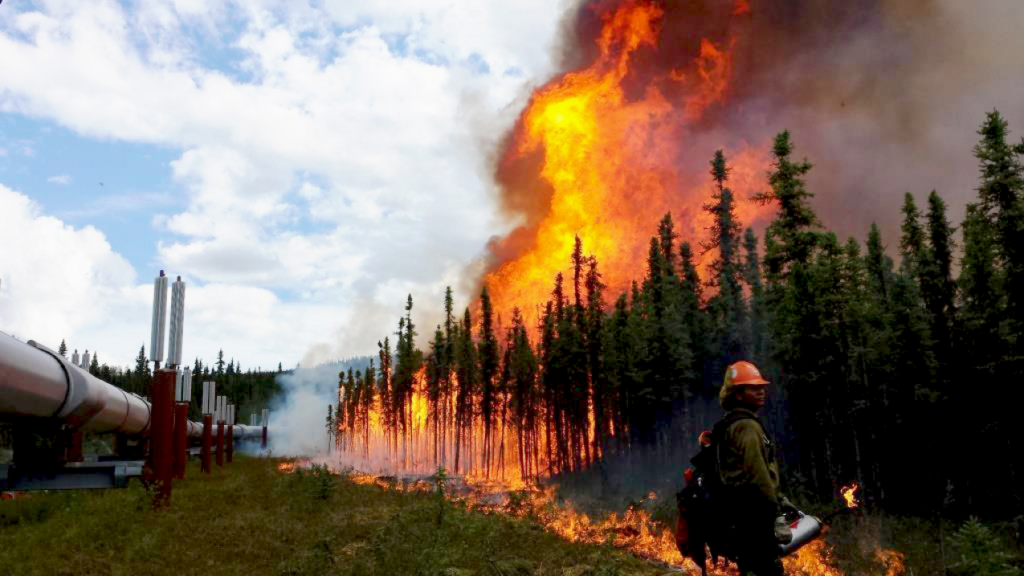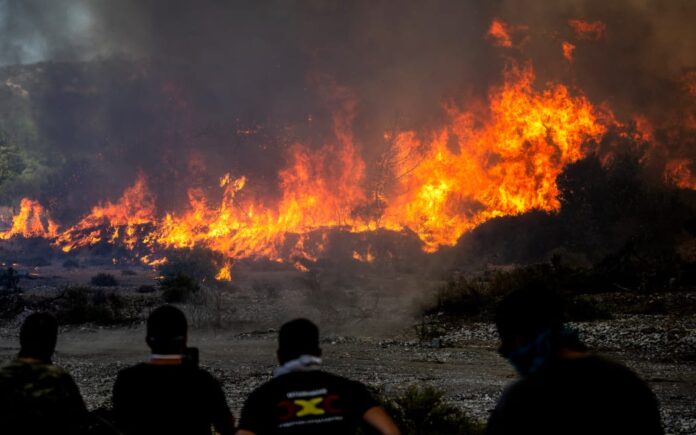In a tragic series of events, Southern Europe is grappling with relentless wildfires as scorching temperatures continue to torment the region, claiming lives, destroying homes, and disrupting lives. Algeria, Italy, Greece, and Tunisia are among the countries worst hit, with thousands of people evacuated and emergency services working tirelessly to contain the blazes.
The picturesque Greek islands of Rhodes, Corfu, and Evia have become battlegrounds against the merciless inferno. The evacuation efforts have escalated, with authorities preparing for more flights to save residents and tourists alike. Temperatures are predicted to exceed a scorching 44°C (111°F) in parts of Greece, and the relentless heatwave shows no signs of abating.
Algeria, too, has been struck by the disaster, with 34 lives lost, including 10 soldiers caught in the flames during an evacuation mission in Bejaia province. Though 80% of the fires have been extinguished, the firefighting battle continues with the aid of thousands of personnel, fire engines, and aircraft.
The impact of these fires extends to Italy, where Sicily and Puglia witnessed thousands fleeing to escape the wrath of wildfires. The situation has been exacerbated by high winds and tinder-dry vegetation, rendering firefighting efforts challenging and leaving communities vulnerable.
Amidst this devastation, it is crucial to recognize the broader implications of these wildfires in the context of climate change. A team of climate scientists from the World Weather Attribution group has linked this month’s extreme heatwave in Southern Europe, North America, and China to human-induced climate change. The need for concerted global action to address climate change has never been more evident.

Italy experienced a stark contrast in weather, with the north facing deadly storms and the south grappling with wildfires. The extreme heat in Catania soared to a record 47.6°C (118°F), leaving residents and essential services strained. Similarly, in Calabria, a tragic incident saw a 98-year-old man trapped in his home by the encroaching flames, with his daughter and son-in-law suffering injuries in their brave rescue attempt.
The havoc hasn’t spared the French Mediterranean island of Corsica, where strong gales fueled the flames, putting three villages at risk.
Besides the human toll, the tourism industry, which is vital to many of these regions, faces a daunting challenge. Greek islands such as Rhodes, Crete, and others heavily rely on tourism, and the evacuations and wildfires have disrupted travel plans. Nonetheless, the UK Foreign Office has not issued travel advisories for affected parts of Greece, though it urges travelers to remain updated through tour operators.
As the world watches these disasters unfold, it becomes clear that mitigating climate change and investing in resilient infrastructure and firefighting capabilities are crucial to protect lives, livelihoods, and natural ecosystems. The urgency for global collaboration and climate action has never been greater. Only through collective effort can we hope to safeguard our planet and future generations from the ravaging consequences of an escalating climate crisis.





